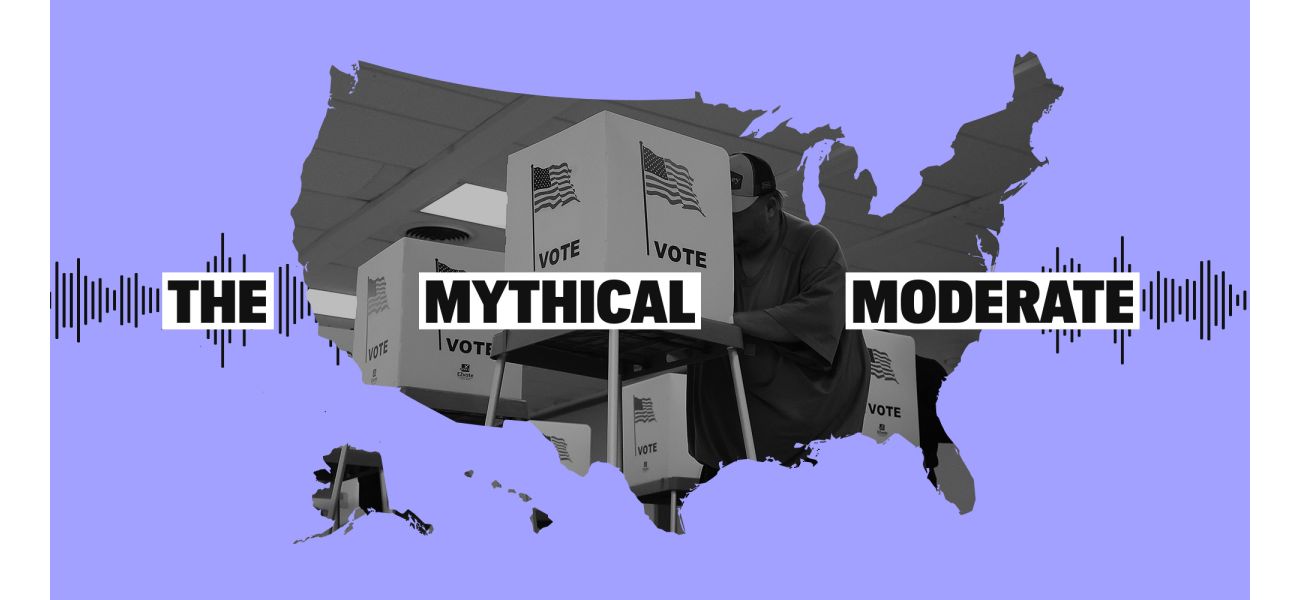Kamala's unsuccessful search for a moderate.
The Democrats once again failed to defeat Trump, as Kamala's attempts to appeal to moderates proved unsuccessful.
November 7th 2024.

As the dust settles after one of the most contentious elections in recent history, many are already beginning to dissect and analyze what went wrong for Kamala Harris and her campaign. It's clear that there were some major missteps that led to her defeat, and the early trends are starting to emerge.
One of the biggest factors seems to be Harris's struggle to connect with Black and Latino men, who surprisingly showed strong support for Donald Trump this time around. She also failed to gain traction in cities, which are typically Democratic strongholds. And to make matters worse, she even fell short among younger voters, a demographic that is crucial to her party's success in both the present and future.
So what caused this disappointing outcome? Some are pointing to Harris's failure to present a distinct agenda that would resonate with disaffected Democrats. Instead, she stuck closely to the policies of President Joe Biden, despite widespread dissatisfaction and anxiety among voters about the state of the economy and the direction of the country.
According to senior politics reporter Akela Lacy, this may be due to a tendency among Democrats to focus on winning over a supposed "moderate voter," which may not be a winning strategy in today's political climate. Additionally, there seems to have been a lack of effort in addressing the shift towards more conservative views among young voters and finding ways to appeal to this crucial demographic.
To gain a deeper understanding of what may have led to these results, The Intercept Briefing team spoke with voters on the ground in Georgia and Pennsylvania this week. Their insights shed light on the attitudes and opinions of the electorate, and offer valuable insights into the factors that may have contributed to Harris's defeat.
One of the biggest factors seems to be Harris's struggle to connect with Black and Latino men, who surprisingly showed strong support for Donald Trump this time around. She also failed to gain traction in cities, which are typically Democratic strongholds. And to make matters worse, she even fell short among younger voters, a demographic that is crucial to her party's success in both the present and future.
So what caused this disappointing outcome? Some are pointing to Harris's failure to present a distinct agenda that would resonate with disaffected Democrats. Instead, she stuck closely to the policies of President Joe Biden, despite widespread dissatisfaction and anxiety among voters about the state of the economy and the direction of the country.
According to senior politics reporter Akela Lacy, this may be due to a tendency among Democrats to focus on winning over a supposed "moderate voter," which may not be a winning strategy in today's political climate. Additionally, there seems to have been a lack of effort in addressing the shift towards more conservative views among young voters and finding ways to appeal to this crucial demographic.
To gain a deeper understanding of what may have led to these results, The Intercept Briefing team spoke with voters on the ground in Georgia and Pennsylvania this week. Their insights shed light on the attitudes and opinions of the electorate, and offer valuable insights into the factors that may have contributed to Harris's defeat.
[This article has been trending online recently and has been generated with AI. Your feed is customized.]
[Generative AI is experimental.]
0
0
Submit Comment





